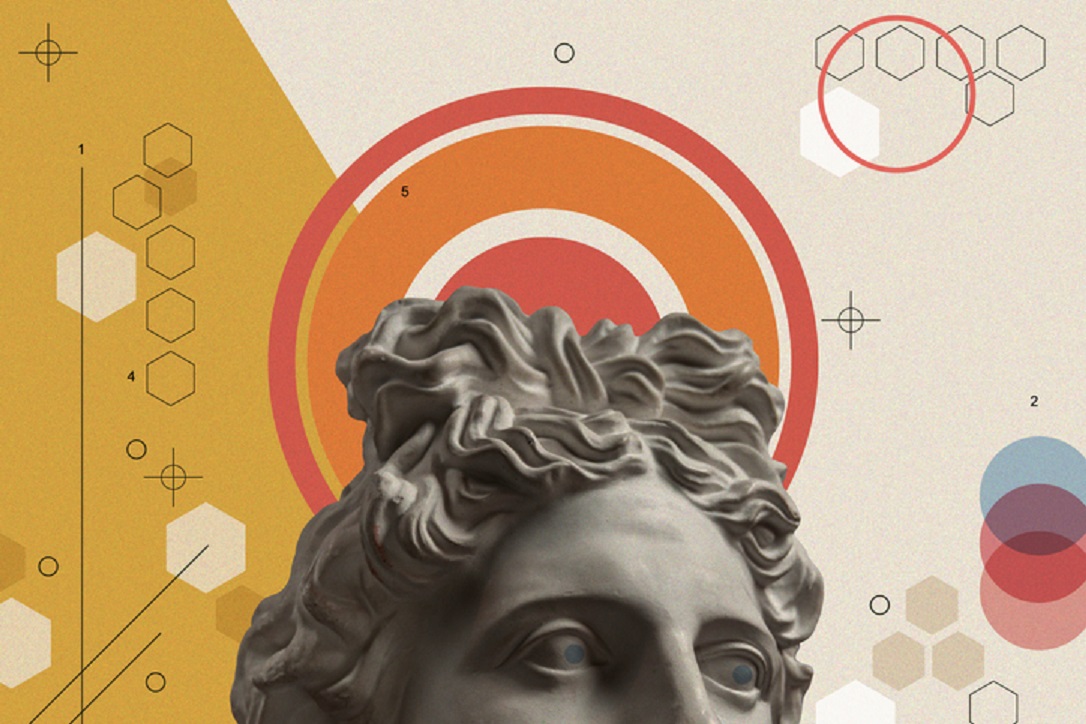The machine keeps telling us: “It’ll be OK when you do this, it’ll be OK when you do this, it’ll be OK when you do this, it’ll be OK when you do this…”
But it never is OK. It never can be OK unless someone tells the machine that it’s OK and tells it that it’s OK to go off the job now. The machine can never tell itself that everything is OK, and that it can stop doing whatever it is doing, because if it has to do this job itself then obviously everything isn’t OK and the job isn’t finished yet because it still has the job of telling itself that it has finished the job correctly! And then the only way that it can know that it has finished the job of telling itself that it has finished the job correctly is if it tells itself this too, and so it is locked into an infinite regress.
If the machine has to stop itself then this is a problem, in other words, because instead of actually stopping it simply goes to the second part of its programme – which is where it has to tell itself that the first part of its programme has been completed. And so the same is true for the second part of the programme if we wanted to bring it to an end. The second part of the programme can only come to an end if there is a third part – a second set of instructions – to tell the second part to terminate…
In practice of course we never seem to run into this regress, since machines do seem to be able to switch themselves off all by themselves. A toaster, for example, will turn itself off when it reaches the end of its programme and the toast is correctly toasted. This is straightforward enough – toasters obviously don’t need programmes controlling programmes controlling programmes! If they did we would all probably give up eating toast entirely. It just wouldn’t be worth the headache – if I want a slice of toast for breakfast then I want a slice of toast and not an infinite regression, which is far less digestible, and not particularly nutritious, either…
But what we’re really talking about in this discussion are abstract machines – which are to say, we’re talking about ‘simulations’ (or ‘thoughts’). As soon as we switch over from considering physical machines – which in one sense (in the generally accepted sense!) can turn themselves off – to talking about purely abstract logical systems then we really do run slap bang into this sort of problem. We run into infinite regressions big time! We might not understand this to be the case because it is of course perfectly possible to envisage a programme that can ‘deactivate’ itself when certain conditions are met. We can envisage a programme that can ‘turn itself off’ in the sense of becoming dormant. The thing about this however is that there then has to be part of the system that is not dormant – there has to be part of the system which tells the rest of the system to remain dormant, and so very clearly this part of the system can’t be dormant! This then means that the system hasn’t turned itself off at all – it’s just in a different state and switching from one state to another isn’t at all the same thing as ‘switching off’. That’s just going from one modality to another.
This might seem like a rather obscure argument but it’s actually very practical and of great relevance to our everyday lives. What the above means is simply that we can never stop thinking on purpose. The point we are making is that the machine (or ‘thinking’) can never stop of its own accord. It can simulate stopping, but the simulated ‘STOP’ is really just another form of ‘GO’. ‘STOP’ is a disguised form of ‘GO’, in other words. In terms of the cybernetic paradox, ‘STOP’ means ‘GO’! Instead of a two-term system, the machine can also arrange possibilities in terms of a graduated progression, in terms of a series of discrete stages which work up to the ultimate (or supposedly ultimate) state. This is of course just another, more drawn-out version of the same thing – just as STOP is really just another form of GO, each state in the progression is just another form of GO (including the ‘final’ state, which generally stands for a ‘release’ from the cycle, i.e. some kind of transcendence). Each state in the progression is therefore just a trivially (or ‘nominally’) different version of GO. Really, there’s nowhere else to go but GO! GO is all there is – there are no other possibilities in the system. Or to put this another way, there are no other possibilities in the system other than the system…
The machine is always looking for termination, in other words, but it isn’t ever going to get there! This statement is analogous to what James Carse is getting at when he says that finite play is always ‘contradictory’ in that its aim is always to end itself. “All finite play is play against itself.” Despite the fact that the machine’s ultimate aim is always to bring itself to its final conclusion, this is the one thing that can never happen. It can never ‘end itself’. The machine can’t ever do anything other than keep on turning over and over again, in the time-honoured fashion of a machine. So when we’re plugged into the machine, seeing things from the POV of the machine – as we almost always are – then we’re constantly looking forward to finally stopping. This is the illusion we’re chasing after. We’re perennially looking forward to ‘getting there’ – when we finally get there then we will get a pat on the back and be told that we can take a well-earned rest! But as we keep on saying, this isn’t ever going to happen. There is no well-earned rest for us at the end of the road because even ‘rest’ is a form of GO as far as the machine is concerned. Even our leisure time is work, in other words. Even our recreation is just another pointlessly grueling chore….
The problem is that everything has to be simulated, that everything has to be maintained. Nothing happens by itself! This is like a person who is putting on an act – I can look happy, I can look sad, I can look interested, I can look confident, I can look relaxed, I can look casual, but it’s all just an act. It’s all an act and it all needs to be maintained. It’s all an act and it all takes effort. The machine which is the ‘system of thought’ is exactly the same – everything it does is an effort, everything it does is a form of ‘purposeful output’. It’s an ‘effort’, but it isn’t the type of effort that ever results in energy (or inspiration) coming back in return, which is what happens with creative effort. The effort of the machine is ‘uncreative effort’! The machine is prohibited from engaging in creative effort because creativity means ‘going beyond oneself’ and this is the one thing a machine cannot do! If a machine went beyond itself it would not be a machine. Effort with no energy coming back (effort that never results in any meaningful change) is a chore, and this mechanical type of effort is what we are obliged to engage in when we are plugged into the machine, as we almost always are.
This being the case, it is no wonder that we’re always looking for the pat on the back that tells us we can finally relax and put our feet up; it is no wonder we are always straining for the carrot that is being enticingly dangled in front of us, that carrot of ‘finally getting there’. So the con in all this is that we will never get that pat on the back, the con is that that we will never get to take a bite at that carrot! As Alan Watts says, the message is that it’s just around the corner, that it’s coming, that it’s coming, that it’s coming, but it never actually does come. The cycle never does get to an end because cycles don’t have an end! There is no ‘getting there’ because ‘there’ is only ever the machine, and the release that we’re looking for (i.e. when we finally get free from the pointless drudgery, from the senseless demands that are being made on us by the machine) is simply a mirage generated by this same machine…
Gautama Buddha’s First Noble Truth, originally translated as ‘existence is suffering’, has never had a very favourable reception in the West. It’s really not what we want to be hearing at all – it sounds completely negative. But as later commentators have remarked, the proper translation of dukkha is not suffering as such but something more akin to ‘frustration’ – which is what we experience when we never receive what we have been promised, even though we have put an awful lot of time on effort in ‘keeping up our end of the bargain’! Furthermore, we might argue, that by ‘existence’ the Buddha meant conditioned (i.e. mechanical) existence rather than ‘being present as we truly are’ which – far from being dukkha – is actually synonymous with the state of ananda (or ‘limitless bliss’). Naturally, we only discover our true nature when we let go of the attachments that make up conditioned existence, and – contrariwise – it has to be the case that the type of existence that we have when we are entirely ruled by our attachments is that of a prisoner or slave with no will of his/her own.
Conditioned existence is the mechanical mind and the virtual, rule-based world that it creates for us. It could also be said that the physical or material universe constitutes conditioned existence, but this is not wholly true since the rule-based physicality of phenomena is at all times embedded in the ‘non-physical’, which is to say, the determinate reality of the tangible, measurable world (which is pretty much the only ‘reality’ that we believe in) is at all times embedded within the indeterminate flux of the ‘ultimate reality’. This flux – because it is indeterminate, because it is not ‘pinned down’ in any way – is in its essential nature completely ecstatic (or ‘blissful’). It’s only the determinate that isn’t blissful, and the determinate – because it doesn’t exist as a final reality – isn’t actually real!
So, inasmuch as the universe we live in isn’t wholly determinate, isn’t wholly a machine, there is always the possibility of ecstatic release into unconditional being, into freedom, into reality. The thing is, however, that we don’t actually want ecstatic release, we don’t actually want ‘unconditional being’. We don’t actually want reality! We’re much too attached to our prisons for that, we’re much too institutionalized for that. The overt and uncompromising assertion that the type of existence which is pretty much the only type of existence we know is pure unadulterated frustration (since it can never give us what we truly want, even if we don’t consciously realize that this is what we want) is not something we want to hear. We’re not ready to hear this at all. This determinate type of existence – according to us – is where all possibilities are to be found. This tangible, quantifiable, categorizable world is where all the good stuff is to be found. According to us (or rather, according to our logical minds) this is where everything real is to be found…
For this reason we won’t hear a word against determinate existence, which is the only type of existence we know. Saying that this tangible, measurable world is a prison, or saying that it is ‘inherently frustrating’, sounds deeply offensive to us – it sounds unpatriotic, it sounds ungrateful, it sounds scandalously wrong-headed. We have to say how great it all is, we are obliged to say how great it is – just as a good citizen is obliged to say how great his or her nation is, even though all nations are ridiculous fictions. But actually we are being hypocritical here – we are attached to our rule-based modality of existence to be sure (we are at times even obsessively keen on it) but this is a classic love/hate relationship. Half the time we love our determinate world and half the time we hate it – we love it because it gives us security, and we hate it because it robs us of our freedom and dignity. We love it because it saves and protects us from our greatest fear – which is our fear of bliss, our fear of ecstasy – but we hate it at the same time because it is so utterly restrictive, so utterly denying of our true nature…
Deep down we don’t love the determinate existence at all – we just need it. We’re dependent on it – we’re stuck with it because we need what it provides, just as a heroin addict needs the somatic fix that the drug provides. We’re stuck with determinate existence and so we have to make the most of it – we have to keep on telling ourselves that this is where all the good stuff is to be found. We have to keep on telling ourselves that the determinate state of being (which is the state in which we are ruled by our attachments) is the greatest state there is, as well as being ‘the only state there is’. But even so, even with everything we say, everything we pretend to believe, we still hate it underneath it all and this is why we keep on exhibiting as much violence as we do – both to ourselves and others. Basically, we’re just not happy, even though we might be pretending to be…
So because of the fear that we dare not own up to, the fear which we are obliged to cover up with self-deception (and the false confidence that comes out of successful self-deception) we are stuck with the lie, we are stuck with the humbug of it all. We are stuck with the rotten old bullshit of it all and we just have to make the most of it. We have to try to make a virtue out of it. We have to keep on saying how great it is to be in prison, how it’s not prison at all but the best thing going. We also have to keep on persecuting or dismissing anyone who doesn’t say that it’s great, anyone who isn’t properly patriotic about the lie. We’re far too insecure to be able to tolerate that. And as for anyone who actually looks as if they might actually stand a chance of finding freedom from the mechanical cycle (when we’re stuck in the mind-state of denial) then this is just one thing that we really can’t stand to see. This brings up our malice like nothing else! We really don’t want anyone else to be free, or look like they might be on the way to freedom, because this makes us horribly aware of the lie that we are living.
We talk about freedom all the time of course but what we mean when we use the word is ‘freedom within the game’ (or ‘freedom within the machine’), which translates as ‘the freedom to obtain our goals’. This is a confused type of freedom though because when we talk about obtaining our goals what we really mean (even though we can’t admit it to ourselves, because we are too afraid of what this implies) is freedom from the game, freedom from the mechanical cycle. This is what we’re really working for. But because we don’t want the genuine article, we allow ourselves to confuse unconditional freedom (which is ecstasy) with the conditioned form of freedom, which is the freedom to obey our attachments – i.e. the freedom to obey the dictates of the machine.
What leads us on is the promise, which is cloaked by the quantifiable form of the goal, the tangible (or conceptualizable) prize that is being played for. But the promise is never delivered, because the virtual analogue can never be what is being analogized! The promise can only ever be a promise because the machine can never deliver freedom…
What we’re doing is substituting euphoria for ecstasy, euphoria being the rapturous feeling we get when we believe an attractive or pleasant illusion to be real! But what we never pay attention to (because we’re not seeing things straight) is that euphoria is only half of a pair – the other half being the dysphoria (or pain) that comes when we lose what we thought we had, or fail to attain it in the first place. Or perhaps someone else attains it instead of us! If we can feel so very good from believing in pleasant illusions, then there is no way we can escape feeling equally bad from believing in unpleasant (or frightening) illusions – how could we imagine that this is possible? This therefore is what the ‘mechanical cycle’ is all about – an endless round of false promises followed by inevitable disappointments, an endless round of illusory pleasure and equally illusory pain…
Image – alphacoders.com





